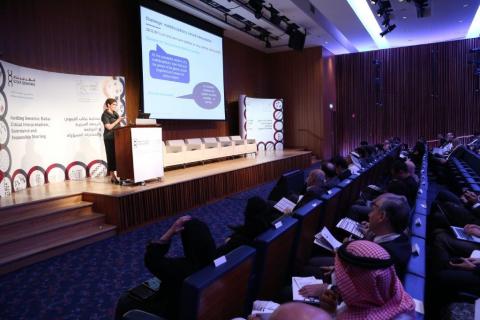
Melbourne Genomics was recently invited to present on our leading whole-of-system approach to implementing genomics into clinical care at the Qatar Genome Programme Symposium 2016. Evaluation data from Melbourne Genomics' Demonstration Project was also presented at the International Congress of Human Genetics (ICHG) in Japan, in four talks and four posters.
Melbourne Genomics’ Executive Director, Clara Gaff, gave two oral presentations at ICHG, focusing on development of a shared genomic data system in Victoria, and on the way in which key findings from evaluation of the Demonstration Project are informing policy. Genetic counsellor Gemma Brett spoke on her experience of how genomic counselling differs from genetic counselling, while clinician Maie Walsh spoke on the usefulness of whole exome sequencing (WES) for patients with childhood onset peripheral neuropathy.
Posters were presented by clinician Sue White on the usefulness of WES in diagnosing children with monogenic disorders, by health economist Deborah Schofield on the social and economic impacts of childhood genetic disorders, by clinician Zornitza Stark on the cost-effectiveness of WES in comparison to standard care, and by Clara Gaff on development of Melbourne Genomics’ whole-of-system approach.
Following ICHG, Clara Gaff travelled to Doha, as an invited keynote speaker at the Qatar Genome Programme Symposium. Clara’s presentation focused on what has been learned about implementing genomics into clinical care through Melbourne Genomics’ Demonstration Project.
“It’s great to see increasing international interest in what is going on here in Victoria,” said Clara. “Our approach is seen as a leading example of how working collaboratively and across the healthcare system can bring huge benefit to patients – now and into the future.”
[Image of Clara Gaff presenting at the Qatar Genome Programme Symposium in Doha. Courtesy Qatar Genome Programme.]
